Former President Uhuru Muigai Kenyatta didn’t just show up to speak at the Jubilee Party National Delegates ConventionJockey Club, Ngong Racecourse on Friday, September 26, 2025—he came to resurrect a party that’s been quiet too long. In a 33-minute speech that drew sustained applause, Kenyatta laid out a clear, no-nonsense roadmap for the Jubilee Party of Kenya to reclaim political relevance ahead of the 2027 Kenyan general elections. The event, held exactly three years after the last NDC at the same Nairobi venue, marked the party’s most significant gathering since its 2022 electoral defeat. And it wasn’t just about strategy. It was about healing.
"All the Work We Did Was for Everyone"
Kenyatta didn’t shy away from confronting the past. At the 4-minute-30-second mark of Maisha TV Kenya’s live broadcast, he declared, "all the work we did was for everyone." He was referring to his administration’s signature programs—especially Linda Mama, the free maternal healthcare initiative launched in 2018 that served over 1.2 million women before being quietly phased out. "Some of the truths highlighted in the past have now become the realities of today," he said, directly criticizing the current government’s replacement of proven systems with "new, untried, untested schemes." The implication was clear: voters remember what worked. And they’re noticing what’s missing.His comments weren’t just policy critiques—they were political ammunition. Linda Mama wasn’t just a health program. It was a lifeline for rural mothers, a symbol of state care, and a key reason why Jubilee retained support in western and coastal Kenya. Its erosion, Kenyatta suggested, wasn’t just administrative—it was ideological.
The Three-Year Silence and the Sabotage Narrative
"We were largely silent for the last three years," Kenyatta said, timestamped at 1430 seconds. "Not by choice. By devious machinations." He didn’t name names, but the subtext was unmistakable: internal fractures, legal challenges, and leadership disputes had paralyzed the party since President William Ruto’s victory on August 9, 2022. The Jubilee Party of Kenya, once the dominant force in Kenyan politics, had been reduced to a shadow of its former self. Delegates in the audience—many of them county officials, former MPs, and grassroots organizers—nodded in quiet recognition.The party’s silence wasn’t just political—it was structural. According to the Jubilee Secretary General, the last NDC was held in September 2022, right after the election loss. But internal power struggles, allegations of financial mismanagement, and a failed attempt to amend the party constitution in 2023 had stalled progress. Kenyatta framed this as sabotage. "They wanted to hold us back," he said. "We’re not going to let that happen again."
Constitutional Amendments to Block Future Sabotage
The most concrete outcome of the convention? The passage of amendments to the Jubilee Party’s internal constitution. At the 1184-second mark, Kenyatta confirmed the delegates had approved changes designed to "ensure that the machinations of the past shall never be used again to hold back our progress." While the exact wording hasn’t been released, insiders say the changes include stricter rules on leadership succession, tighter controls over party funds, and mandatory delegate consultations before any major decisions—measures aimed squarely at preventing the kind of backroom deals that sidelined loyalists after 2022."This isn’t about revenge," Kenyatta insisted. "It’s about survival. A party that can’t protect its own structure won’t survive an election."
Generational Transition: The Quiet Revolution
Perhaps the most emotionally resonant moment came at 1332 seconds, when Kenyatta spoke directly to the young delegates in the room. "As some of us give way, that those same young ones with the same energy, conviction and patriotism that we saw in the streets... you will be able to use them to transform the structures of our party and ultimately you yourselves enter the corridor doors of power and high office and take charge of your own."It was a rare public acknowledgment from a veteran leader that his era was ending. Kenyatta, 63, isn’t running in 2027. He’s not even hinting at it. Instead, he’s grooming successors—activists from the 2017 youth mobilizations, county assembly members who survived the 2022 purge, and even former rivals who’ve now aligned with Jubilee’s revival.
"We will field the best possible candidates," he declared at 1547 seconds. "Either on our own... or in concert with like-minded political movements." That line sent ripples through the room. It’s an open door to alliances—with the Amani Coalition, with breakaway factions of UDA, even with independents who share Jubilee’s development agenda. For a party that once relied on ethnic blocs, this signals a strategic pivot toward issue-based coalitions.
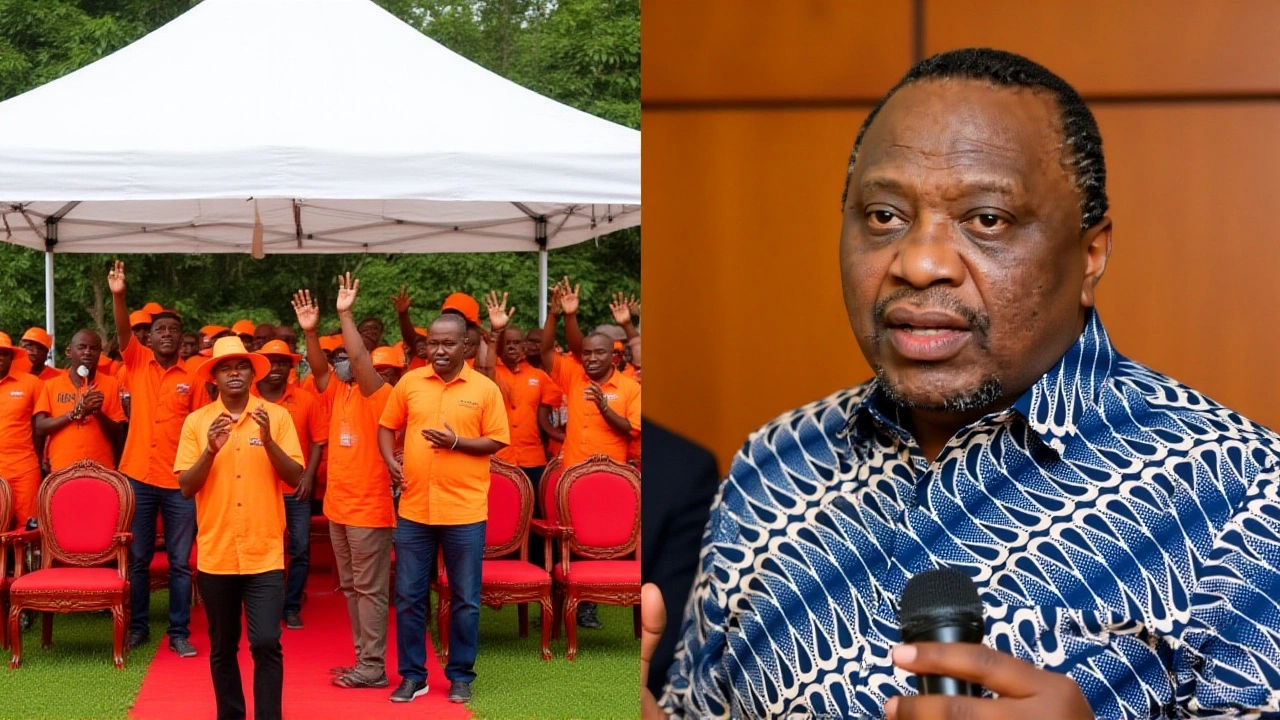
Why This Matters Beyond the Party
Kenya’s 2027 election won’t just be a contest between UDA and ODM. It will be a referendum on whether the country can rebuild its political institutions after years of polarization. The Jubilee Party of Kenya holds membership in 42 of Kenya’s 47 counties. Even diminished, it remains the country’s most widespread party structure. If it can successfully reorganize, recruit young talent, and restore trust in its programs, it could become the central pillar of a new opposition bloc.And that’s exactly what Kenyatta wants. "We want citizens to be present with a vibrant set of options," he said at 1584 seconds. "Not just two or three dynasties. A real democracy."
What’s Next for Jubilee?
The party now has a clear three-phase plan: First, implement the constitutional amendments by November 2025. Second, launch a nationwide candidate recruitment drive targeting under-40 aspirants by March 2026. Third, begin formal alliance talks with other parties by June 2026. Kenyatta has already begun meeting with former allies in Kisumu, Mombasa, and Nakuru. Sources say talks with the Amani National Congress and a faction of the Orange Democratic Movement are underway.The real test? Will young voters—those who didn’t vote in 2022 because they saw no credible alternative—believe this is a real renewal? Or just another old guard trying to cling to power?
Background: From Ruling Party to Resurrection
Founded in 2016 through the merger of The National Alliance and the United Republican Party, Jubilee dominated Kenyan politics for a decade. It won both the 2013 and 2017 elections with overwhelming margins. But after 2022, its machinery crumbled. Key governors defected. County chapters became inactive. Donors pulled back. Even its media arm, Maisha TV Kenya, saw funding dry up.Kenyatta’s speech didn’t just revive a party—it rekindled a political philosophy. One rooted in infrastructure, universal healthcare, and centralized development. The question now is whether that philosophy still resonates in a country where youth unemployment exceeds 35%, and where digital activism has replaced traditional party rallies.
Frequently Asked Questions
Why is Uhuru Kenyatta still influential even though he’s no longer president?
Kenyatta retains deep loyalty in western and coastal Kenya, where Jubilee’s development projects—like roads, hospitals, and the Linda Mama program—left visible impacts. He also controls key party resources and networks, including county-level structures and media outlets. His endorsement still moves votes, making him the de facto kingmaker in the party’s 2027 strategy.
What are the chances Jubilee will win the 2027 elections?
Winning outright is unlikely. But if Jubilee forms a broad coalition and fields strong candidates in 30+ constituencies, it could become the largest opposition bloc. Polls show 42% of voters are dissatisfied with UDA’s performance. Jubilee’s revival could capture a significant share of that discontent, especially if it ties its platform to restoring healthcare and rural infrastructure.
How does the Linda Mama program relate to the 2027 election?
Linda Mama served over 1.2 million women during its peak. Its dismantling has led to a 27% increase in maternal mortality in rural counties, according to Kenya’s 2024 Health Ministry report. Kenyatta’s criticism isn’t just political—it’s factual. Voters remember who delivered care. Reinstating or improving maternal health services could become Jubilee’s signature policy in 2027.
What do the constitutional amendments actually change?
The amendments require a two-thirds delegate vote to remove any national officer, mandate quarterly financial audits by an independent body, and prohibit any single county from dominating leadership nominations. These changes are designed to prevent the kind of centralized control and internal coup attempts that fractured the party after 2022.
Is Uhuru Kenyatta planning to run for office again?
No. Kenyatta has repeatedly stated he won’t seek office again. His focus is on institutional renewal, not personal legacy. He’s positioning himself as the party’s elder statesman—similar to how Daniel arap Moi supported Kibaki’s rise. His goal is to ensure Jubilee survives him.
Why is the Jockey Club, Ngong Racecourse, significant to Jubilee?
It’s the party’s symbolic home. Jubilee held its founding convention there in 2016 and its last NDC in 2022. Holding the 2025 NDC at the same venue signals continuity and resilience. It’s a message: We’re back where we started—and this time, we’re ready.

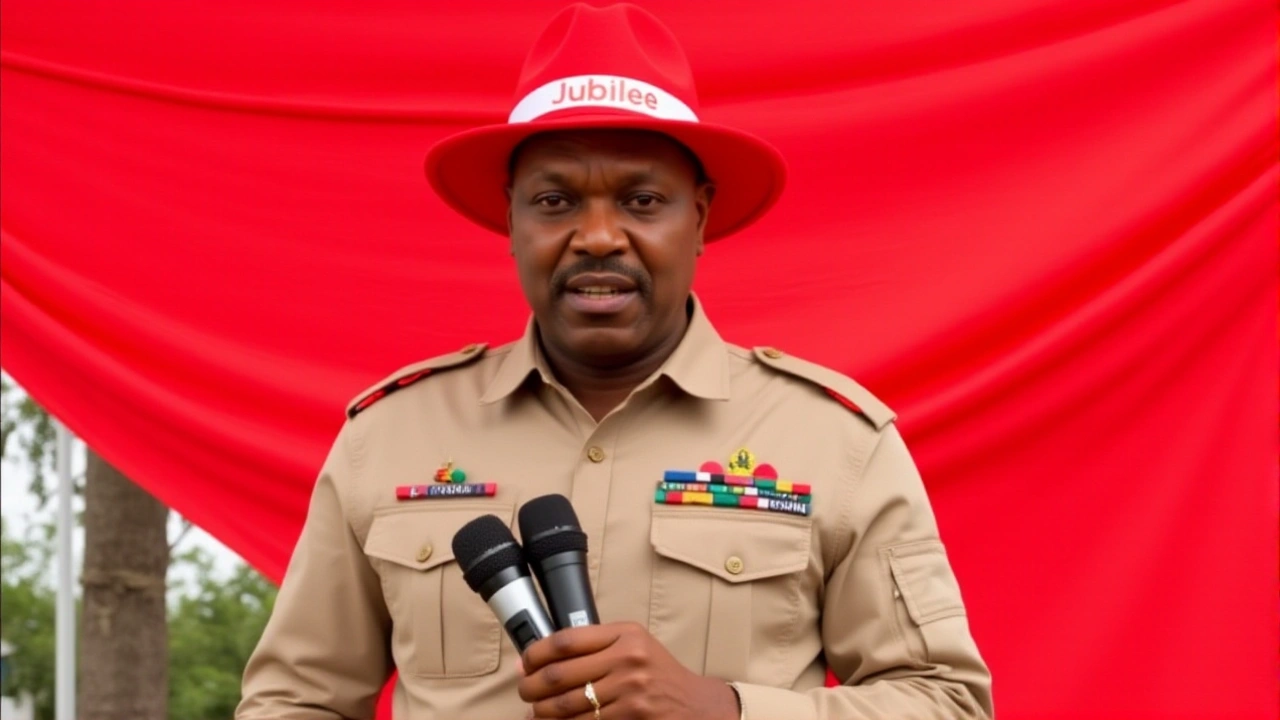
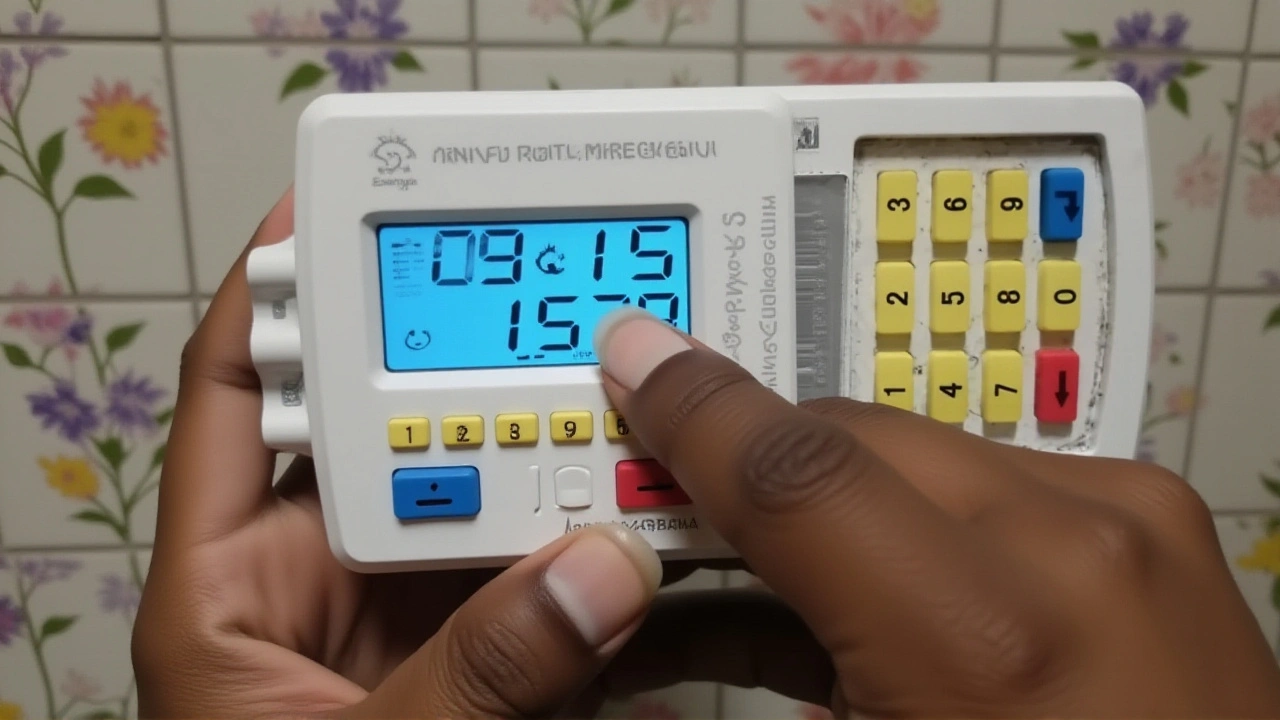
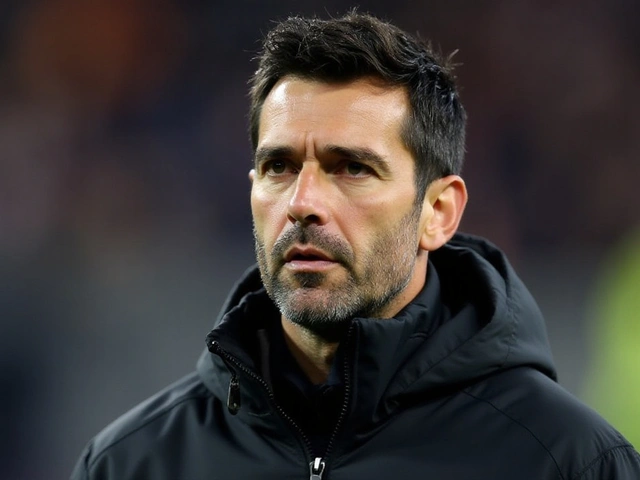


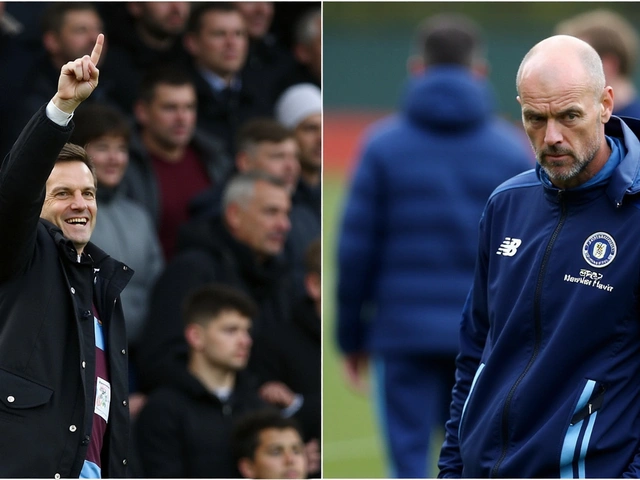

Shruthi S
November 19, 2025 AT 08:36 AMWow this gave me actual chills 🥹 Linda Mama wasn’t just a program-it was hope for so many moms. I remember my cousin in Kisii giving birth with zero cost, no stress, just care. Why do we keep replacing real solutions with flashy new logos? 😔
Neha Jayaraj Jayaraj
November 19, 2025 AT 17:52 PMOMG THIS IS THE DRAMA I LIVE FOR 💃💥 Kenyatta didn’t just speak-he dropped a whole Netflix documentary in 33 minutes. And now the party’s got a ‘constitution’ like it’s Game of Thrones? 😭 Who’s the Littlefinger here?? I need a sequel. Also, Linda Mama’s ghost is haunting Ruto’s office rn. 👻
Disha Thakkar
November 20, 2025 AT 01:11 AMLet’s be real-this is performative nostalgia wrapped in Swahili patriotism. The ‘Linda Mama’ program was underfunded from day one, and the maternal mortality stats? Cherry-picked. Kenyatta’s ‘resurrection’ is just a PR stunt to rebrand a crumbling dynasty. Real reform requires dismantling patronage, not more constitutional amendments that look good on paper. 🤷♀️
Abhilash Tiwari
November 22, 2025 AT 00:29 AMMan, I’ve seen a lot of political comebacks but this one? It’s got soul. Like a dusty old guitar being tuned up after years in the closet-still a little outta key, but you can feel the music underneath. Kenyatta’s not trying to be president again, he’s trying to be the guy who made sure the band didn’t break up. Respect. 🎸
Anmol Madan
November 22, 2025 AT 22:41 PMyo so uhuru’s not running but he’s still calling the shots? that’s wild. like a retired coach still yelling plays from the bleachers 😆 but honestly, if this gets young people engaged, i’m down. just don’t let it turn into another ‘remember when we had good roads’ meme.
Shweta Agrawal
November 23, 2025 AT 17:09 PMi think its beautiful that he’s letting go and making space for the young ones i really hope they listen and build something better not just copy the old way
raman yadav
November 24, 2025 AT 18:36 PMyo this is the real revolution bro. kenya’s been waiting for this since 2013. kenya’s not a country its a vibe and jubilee’s bringing back the vibe. the constitution amendments? that’s not politics thats divine intervention. linda mama was a miracle. and now they’re gonna fix it? god is good. the youth are ready. the elders are wise. the future is now. ✨
Ajay Kumar
November 24, 2025 AT 20:01 PMthey say sabotage but who really funded the opposition? who leaked the audit reports? who made sure maisha tv lost funding? this isn’t about party rules-it’s about who controls the money. the real sabotage was never internal. it was the donors pulling strings while pretending to be neutral. kenya’s politics are a puppet show and kenya’s people are the audience. and now they’re asking for a new script? good luck. the puppeteers never leave the room.
Chandra Bhushan Maurya
November 26, 2025 AT 03:28 AMI’m not crying, you’re crying. 😭 When he spoke to the youth-really, truly spoke to them, not just at them-I felt it in my chest. That’s the moment you realize this isn’t about winning elections. It’s about passing the torch before the flame dies. I’ve seen too many leaders cling to power until their legacy turns to ash. He’s choosing legacy over throne. That’s rare. That’s sacred.
Hemanth Kumar
November 26, 2025 AT 09:00 AMWhile the rhetorical framing of institutional renewal is commendable, one must critically assess the structural viability of the proposed constitutional amendments. The requirement for a two-thirds delegate vote to remove national officers introduces significant governance inertia, potentially enabling entrenched factionalism under the guise of democratic safeguarding. Furthermore, the absence of public transparency regarding the precise textual provisions undermines the legitimacy of the reform process. Institutional resilience cannot be achieved through procedural obfuscation.
kunal duggal
November 27, 2025 AT 09:13 AMFrom a political systems perspective, the proposed amendments represent a classic institutional design response to collective action problems in party fragmentation. The mandatory independent audits and decentralized nomination protocols align with Ostrom’s principles of polycentric governance. If implemented with robust monitoring mechanisms, this could serve as a replicable model for other post-electoral defeat parties in emerging democracies. The real KPI? Youth retention rate post-2026 recruitment drive.
Ankush Gawale
November 28, 2025 AT 04:29 AMi think everyone just needs to chill a bit. we all want better healthcare and better leadership. maybe we can all just work together instead of fighting over who’s right or who did what. kenya’s big enough for all of us to win
रमेश कुमार सिंह
November 29, 2025 AT 01:27 AMbro this is the poetry of power. not the power of the throne but the power of letting go. kenya’s soul isn’t in the presidency-it’s in the village mothers who got care, in the kids who walked miles to school on new roads, in the silence after a birth that didn’t end in tears. uhuru didn’t just speak-he sang the lullaby the country forgot. and now the young ones? they’re learning the tune. the revolution isn’t coming. it’s already here. 🌱
Krishna A
November 30, 2025 AT 16:16 PMlinda mama was a scam. the money went to contractors. the clinics were empty. the nurses were unpaid. they just used it to win votes. now they wanna bring it back? please. this is just a distraction so nobody asks about the real corruption.
Jaya Savannah
December 2, 2025 AT 12:50 PMso uhuru’s back… and the party’s got a constitution now? 😂 guess we’re all gonna start calling our county reps ‘delegate lords’ now? 🙃 also, if this was a Netflix doc, i’d binge it. but in real life? i’ll believe it when i see a free ultrasound in my village.